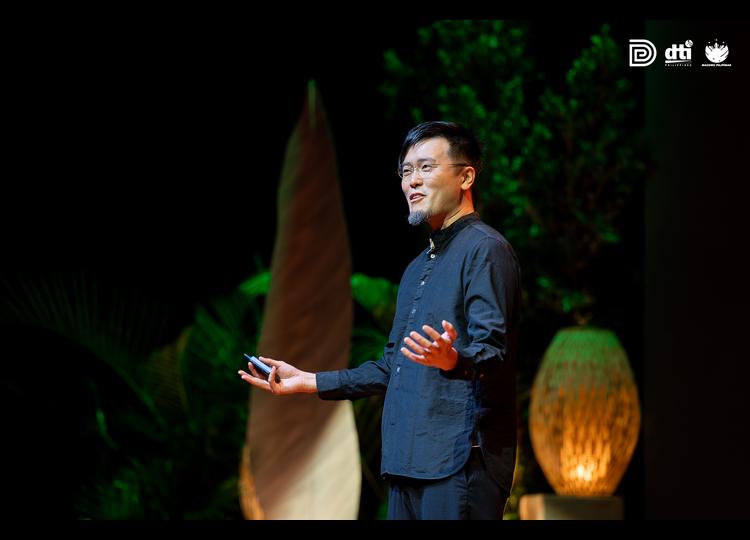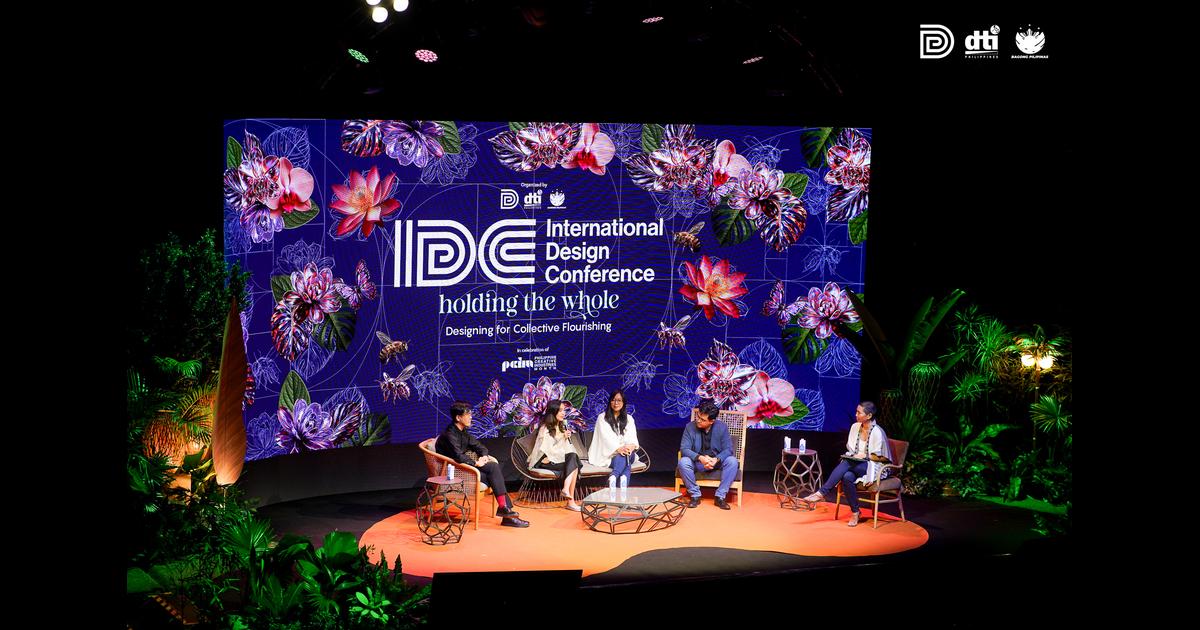The International Design Conference (IDC) 2025 returned to Manila with a clear mission: to show that design goes far beyond objects or aesthetics and is central to shaping futures. What set this year’s gathering apart was its openness. Instead of distant, one-way speeches, it unfolded as a conversation —raw, personal, and grounded in the belief that heartbreak and mistakes can spark transformation.
The theme, “Holding the Whole: Design for Collective Flourishing,” invited everyone to see design as a force that connects people, systems, and the planet. Here are the most important lessons to carry forward:
1. Mistakes Drive Evolution
Prof. Eisuke Tachikawa reminded everyone that “mistakes are the father of evolution.” Innovation grows from failure, from broken ideas, and from the courage to try again. For the Philippines, where resilience is constantly tested, this message rings loud and clear.

NOSIGNER CEO and founder Prof. Eisuke Tachikawa discusses the concept of evolutional creativity in his talk, “Creativity as Evolution: Awakening to Life’s 3.8 Billion Year Design Process”
2. Systems Can and Must Change
Education, disaster response, business practices — all of these were created by design. Which means they can be reimagined. Seeing systems as flexible empowers us to question what no longer works and build alternatives that serve more people.
3. Vulnerability Builds Strength
Grief, heartbreak, and personal struggle were central to the discussions. Instead of being seen as weaknesses, these experiences were reframed as powerful starting points. Vulnerability deepens empathy and strengthens our ability to design solutions that endure.
4. Leadership Should Elevate Communities
Joseph Pine emphasized that businesses should exist to help people flourish. When leaders focus on uplifting employees, customers, and communities, they create ripple effects that extend far beyond profits or products.
_750x540.jpg)
The Experience Economy author Joseph Pine highlights the role of business leaders in spearheading the transformation of the country.
5. Design Belongs to Everyone
Teachers redesign classrooms. Farmers rethink their relationship with the land. Families adapt the way they live through uncertain times. Design is not confined to professionals; it is part of how every person shapes the future.
IDC 2025 highlighted why gatherings like this are essential. They create space for dialogue, challenge old assumptions, and spark collective imagination.
The call now is to stay engaged. Each choice we make carries design within it, and together those choices can build a future where flourishing is shared by all.

